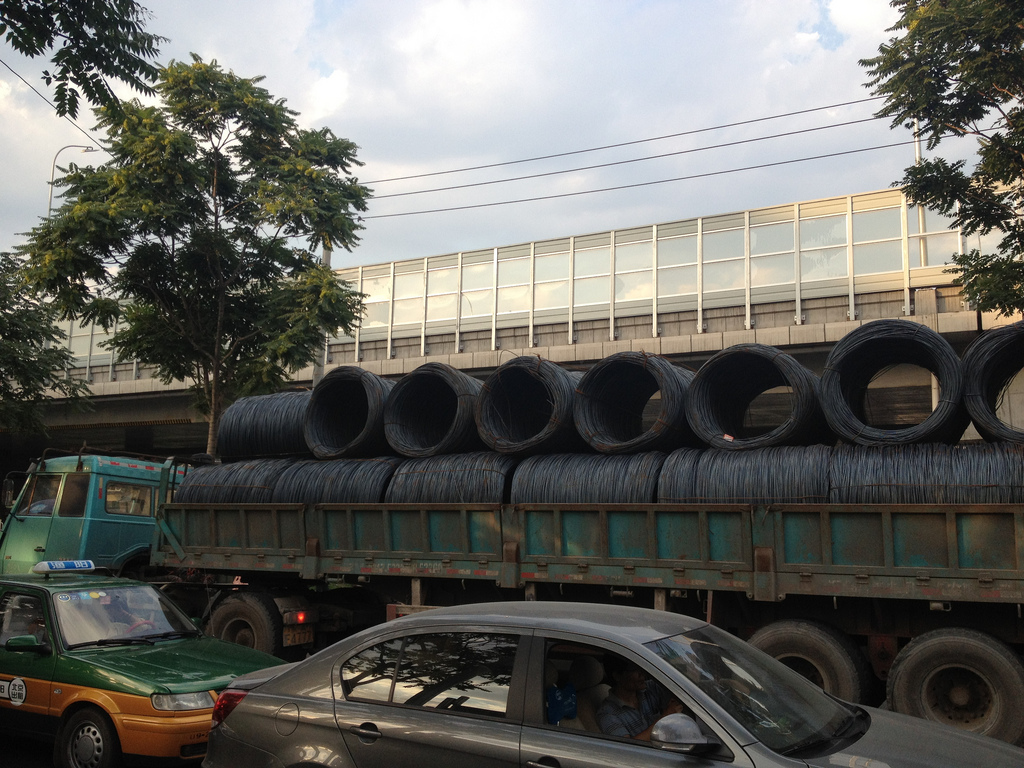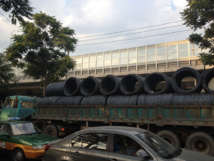Chinese commodity market is experiencing a serious crash, yet reaching the bottom still may take a lot of time. The cost of iron ore and steel reinforcement fell by 7% in just one trading day.
Experts have long warned China that the overcapacity would sooner or later lead to a strong fall in prices and the impact on the entire industry. Nevertheless, the prices were stuck at profitable levels.
Last week, however, the situation flip-flopped.
Recall that the US Department of Commerce has dramatically increased size of import tariffs on Chinese steel, thereby satisfying a lawsuit filed in July 2015 by the largest steel producers - US Steel, AK Steel Corp, ArcelorMittal USA, Nucor Corp and Steel Dynamics Inc. The Chinese authorities, in turn, have demanded "to correct the error as soon as possible."
The duty rate was set at 522%, virtually blocking supply of steel from China to the United States.
The Chinese authorities expressed ‘strong disappointment’: "The US used a lot of fraudulent practices during the anti-dumping and anti-subsidy investigations against Chinese products, including the refusal to provide the Chinese state companies with a differentiated tax rate. China urges the United States to comply strictly with WTO’s rules and to correct their mistakes as soon as possible."
This event only intensified the fall in commodity prices, which has been going on for quite a long time. The cost of iron ore on Monday fell by 7%, thus having reached 30% during the month.
Reinforcing steel in the past month fell by 32%, and now prices have dropped by 5%.
Hot rolled coil (carbon steel sheet rolling) this month became cheaper by 28%, and on Monday fell by 6%.
In theory, the fall in prices should improve the Chinese market, as excess capacity and weak enterprises will be eliminated. But it is doubtful that Beijing is comfortable with the situation.
Most likely, the Chinese authorities are now thinking of retaliation, which could have a negative impact on the US stock market, thereby forcing investors to think about the capital redistribution.
In addition, China and the US are struggling to prevent the stock market fall, which is considered an indicator of "wealth creation" in the national economy.
It is not clear what the introduction of protective duties in the United States will entail. It may well be so that the world will find itself on the threshold of a new trade war.
In addition to increasing taxes on steel from China, the Commerce Department also announced the increase of the import tariff on cold-rolled products, produced in Japan, at 71.35%.
In March this year, the US Department of Commerce announced the introduction of provisional duties on cold-rolled steel imports from Brazil, Russia, India, China, South Korea and the United Kingdom.
source: investing.com
Experts have long warned China that the overcapacity would sooner or later lead to a strong fall in prices and the impact on the entire industry. Nevertheless, the prices were stuck at profitable levels.
Last week, however, the situation flip-flopped.
Recall that the US Department of Commerce has dramatically increased size of import tariffs on Chinese steel, thereby satisfying a lawsuit filed in July 2015 by the largest steel producers - US Steel, AK Steel Corp, ArcelorMittal USA, Nucor Corp and Steel Dynamics Inc. The Chinese authorities, in turn, have demanded "to correct the error as soon as possible."
The duty rate was set at 522%, virtually blocking supply of steel from China to the United States.
The Chinese authorities expressed ‘strong disappointment’: "The US used a lot of fraudulent practices during the anti-dumping and anti-subsidy investigations against Chinese products, including the refusal to provide the Chinese state companies with a differentiated tax rate. China urges the United States to comply strictly with WTO’s rules and to correct their mistakes as soon as possible."
This event only intensified the fall in commodity prices, which has been going on for quite a long time. The cost of iron ore on Monday fell by 7%, thus having reached 30% during the month.
Reinforcing steel in the past month fell by 32%, and now prices have dropped by 5%.
Hot rolled coil (carbon steel sheet rolling) this month became cheaper by 28%, and on Monday fell by 6%.
In theory, the fall in prices should improve the Chinese market, as excess capacity and weak enterprises will be eliminated. But it is doubtful that Beijing is comfortable with the situation.
Most likely, the Chinese authorities are now thinking of retaliation, which could have a negative impact on the US stock market, thereby forcing investors to think about the capital redistribution.
In addition, China and the US are struggling to prevent the stock market fall, which is considered an indicator of "wealth creation" in the national economy.
It is not clear what the introduction of protective duties in the United States will entail. It may well be so that the world will find itself on the threshold of a new trade war.
In addition to increasing taxes on steel from China, the Commerce Department also announced the increase of the import tariff on cold-rolled products, produced in Japan, at 71.35%.
In March this year, the US Department of Commerce announced the introduction of provisional duties on cold-rolled steel imports from Brazil, Russia, India, China, South Korea and the United Kingdom.
source: investing.com



















